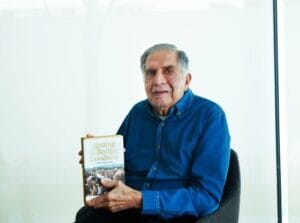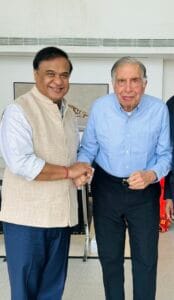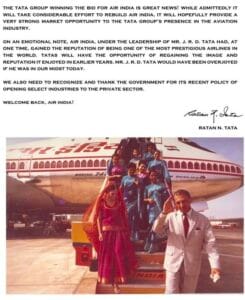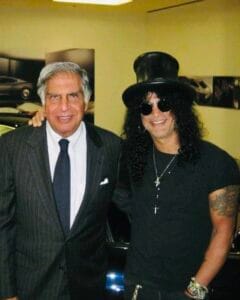Ratan Tata was more than just a businessman; he was a visionary leader who redefined the very essence of the Tata brand. His recent passing at the age of 86 marks the end of an era for India’s most beloved industrialist. From humble beginnings on the shop floors of Tata Steel to becoming the group chairman, Tata’s journey is a testament to perseverance, innovation, and social responsibility. Let’s delve into the life of this remarkable man and explore the facts that shaped his legacy.
Early Life and Education
Family Background
Born into the illustrious Tata family, Ratan Tata was the grandson of the group’s founder, Jamsetji Tata. However, his childhood was not without its challenges. His parents separated when he was just ten years old, and he was raised by his grandmother, Navajbai Tata, who played a pivotal role in shaping his values.
Education Journey
Ratan’s academic pursuits took him to the United States, where he earned a Bachelor’s degree in Architecture from Cornell University in 1962. He didn’t stop there; in 1975, he completed the Advanced Management Program at Harvard Business School, further honing his skills for future leadership.
Early Career in Tata Group
First Job at Tata Steel
Ratan Tata began his career at Tata Group in 1961, starting at Tata Steel. His first role involved managing operations on the shop floors, which provided him with invaluable insights into the workings of the company and the challenges faced by workers.
Initial Challenges and Learning Experiences
The experience was not always easy. Tata faced the typical challenges of a young manager in a large corporation, but these formative years were crucial in developing his leadership style, emphasizing empathy and hands-on management.
Rise to Leadership
Becoming Chairman
In 1991, Ratan Tata took over as chairman of Tata Group. His ascent to this position was marked by a vision that would expand the group’s global footprint and diversify its interests.
Major Acquisitions and Expansions
Under his stewardship, the Tata Group made significant acquisitions, including the purchase of Jaguar Land Rover in 2008. This strategic move not only diversified the group’s portfolio but also showcased Tata’s commitment to revitalizing brands with rich histories.
Visionary Leadership Style
Focus on Innovation and Sustainability
Ratan Tata was known for his forward-thinking approach. He pushed for innovation and sustainability in all business practices. Under his leadership, Tata Motors developed the Nano, which aimed to provide affordable transportation.
Emphasis on Ethics and Integrity
Tata believed in conducting business with integrity. He emphasized the importance of ethical practices and corporate governance, ensuring that the Tata Group was synonymous with trust and reliability.
Philanthropic Efforts
Commitment to Education
Ratan Tata’s commitment to education is evident in his establishment of the Tata Scholarship Fund at Cornell University, providing financial support to Indian students pursuing undergraduate studies.
Initiatives for Social Welfare
Beyond education, Tata was actively involved in numerous social initiatives aimed at healthcare, rural development, and women’s empowerment, reflecting his belief in the power of business to uplift society.
Personal Life and Interests
Unmarried Life
Despite his immense success, Ratan Tata remained unmarried. He came close to marrying on several occasions but ultimately chose to focus on his career and philanthropy.
Love for Animals
A lesser-known fact about Tata is his deep love for animals. He was known to rescue stray dogs, allowing them to find shelter at the Bombay House, the headquarters of the Tata Group. This tradition has roots in his grandfather’s values and reflects Tata’s compassionate nature.
Legacy and Impact
Awards and Honors
Ratan Tata’s contributions to India were recognized through numerous awards, including the Padma Vibhushan in 2008 and the Padma Bhushan in 2000. These honors are a testament to his influence and commitment to nation-building.
Influence on Indian Industry
His leadership has shaped the modern Indian business landscape, inspiring countless entrepreneurs and leaders. Ratan Tata’s emphasis on innovation, ethical business practices, and social responsibility has left an indelible mark on the industry.
Final Days and Reflections
Health and Last Moments
In his final days, Ratan Tata faced health challenges typical of aging. He was hospitalized for routine investigations related to age, and his passing on October 9 shocked many who admired his contributions.
How He Wanted to Be Remembered
Tata once stated, “I would like to be remembered as somebody who had never hurt others and done work to the best interest of business.” This simple yet profound statement encapsulates the values that guided his life and career.
also read:
Connections Hint Today
FAQs
- What were Ratan Tata’s major contributions to the Tata Group?
- Ratan Tata was instrumental in expanding the Tata Group’s global presence through key acquisitions and a focus on innovation.
- How did Ratan Tata impact Indian industry?
- His leadership style emphasized ethics and social responsibility, setting a benchmark for corporate governance in India.
- What philanthropic initiatives was Ratan Tata involved in?
- Tata supported education through scholarship funds and initiated various social welfare programs aimed at healthcare and rural development.
- What was Ratan Tata’s educational background?
- He graduated with a Bachelor’s degree in Architecture from Cornell University and completed an Advanced Management Program at Harvard.
- How is Ratan Tata remembered by peers and the public?
- Ratan Tata is remembered as a visionary leader and philanthropist who significantly impacted business practices and social initiatives in India.




